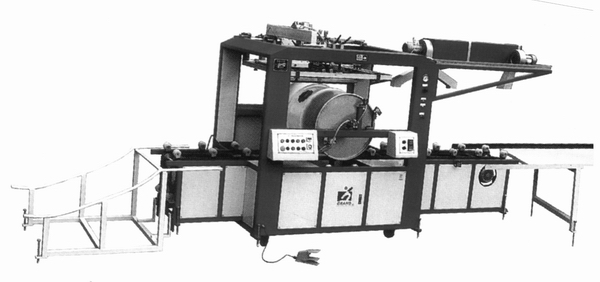200L steel drums are made of materials such as cold-rolled steel sheets or galvanized sheets, which are open and closed, and are common containers for liquid materials such as oils and solvents on the market. For cold-rolled steel sheet steel drums, to prevent the rust of the barrel, the painted surface should be painted to achieve beautiful and practical results. In general, customers will also require that steel drums and barrels be printed with text or designs (such as company names, trademarks, media names, weights, etc.). These texts or designs are often screen printed and printed. The quality of the steel drum has a great influence on the appearance quality of the steel drum and directly relates to the customer's market image. This article outlines this process and illustrates some of the key points in this process.
Nylon screens are usually used for screen printing on steel drums. After the plate is made, the ink is printed on the surface of the steel drum by screen printing with a squeegee.
1, the screen nylon mesh is better elasticity, is the ideal plate-making material for screen printing, mesh is divided into many kinds according to the number of mesh, such as 120 mesh, 150 mesh, 200 mesh, 250 mesh, 300 mesh, 350 mesh , 380 mesh, etc., Different mesh screens have different penetrating power for ink, the smaller the mesh number, the thicker the screen, the stronger the permeability, and vice versa. When making a plate, first select the appropriate screen according to the pattern printing area and ink permeation performance. If the pattern area is small and the ink permeability is better, a screen with a higher mesh number should be selected to achieve a higher coverage rate. High and neat appearance. If the pattern is printed on a large area and the ink permeability is poor, it is advisable to select a screen with a lower mesh number in order to ensure that the pattern covers evenly, but the edges may have serrated edges.
There are imported and domestically-made screens, which are expensive to import, not easy to take off, and have a longer life span. Domestic prices are cheaper and can be selected based on factors such as printing difficulty.
Choose a good wire mesh, to pull the net nail network, can be fixed with a net nail or sticky net glue, pull the net to be tightened, even force, too loose when printing will produce missing ink or sticky net and other defects.
2. After the screen printing plate is made, print it. Before printing, first wash the screen with water or washing solution, dry it, and apply the emulsion. The photosensitive adhesive should be coated evenly and the coating should have a certain thickness. If it is too thin, the phenomenon of peeling of the photosensitive film will occur during printing, which will affect the production. After drying the sensitized adhesive, it should be dried to ensure that the sensitized adhesive is dry and at the same time it can be prevented from falling off.
Photosensitive adhesive drying, exposure exposure, the film and the screen fit together, to avoid running light, exposure time 5-10min (specific length of time to be determined according to practice), the length of the screen life has an important impact, is directly related to The fastness of the photo-resist film and the screen can affect the exposure quality at the same time.
After the printing is finished, it is necessary to check carefully and repair the leaks with a sealer to facilitate the normal production and avoid frequent ink leakage and shutdown.
3, after the printing screen is made, select the desired ink printing. The ink has different compositions, and it is necessary to select a suitable ink for the paint composition on the surface of the printed object. When the performance is not satisfactory, the affinity between the ink and the lacquer ink is poor and it is easy to fall off. The fineness of the ink composition affects its ability to pass through the screen, so higher coverage can be achieved with thinner components.
For barrel printing, a flat squeegee is usually used, and the barrel body is printed with a V-shaped squeegee. When printing, it is necessary to use a suitable hardness of the scraper, at the same time pay attention to whether the scraper surface is smooth, if not smooth, the printing pattern is easy to appear scratches, affecting the appearance of the pattern quality.
The above is mainly from a qualitative point of view. Quantitative analysis in the printing process such as the relationship between the screen mesh number and the pattern, the ink fineness, the hardness of the squeegee, the photosensitive time, the thickness of the photosensitive film, the tension of the screen and the quality of the print also need to be summarized by the operator in production.
